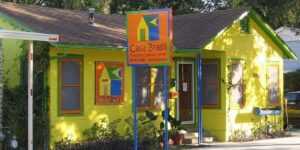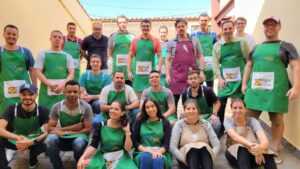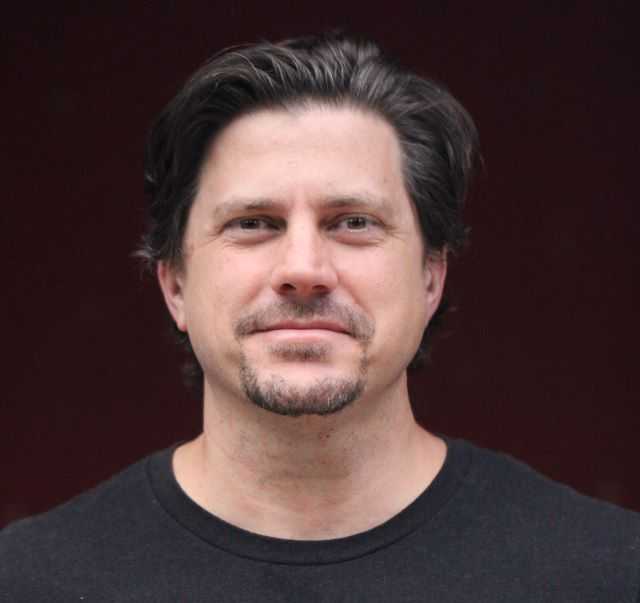MILAN – Joel Shuler is a US citizen, residing in Brazil. He began his career in coffee as a roaster and the he moved to Brazil in 2014 to pursue a degree in post-harvest processing at the Universidade Federal de Lavras (UFLA). Along with Casa Brasil Coffees, he works as a Q instructor and post-harvest processing consultant.
Casa Brasil Coffees began in 2005 as just “Casa Brasil”
A Brazilian Cultural Center in Austin, Texas, but if you talk about culture in Brazil, you also talk about coffee: how did you get to be a roaster?
“As you mention, we opened out doors as a cultural center. Our mission was to support Brazilians living in Central Texas, promote Brazilian culture, and provide a place to “touch Brazil.” We offered Portuguese classes, had weekly Samba partied, rented Brazilian movies, and had a small Brazilian market and café. We sold commercial grade Brazilian coffee (the coffee commonly sold here in Brazil). I wasn’t happy with the quality so I went to a local roaster and asked for their best Brazilian coffee. They responded ” their is no such thing as a good Brazilian coffee.”

I thought to myself “surely in a country as big as Brazil there has to be some good coffee,” and that is what really started everything. I made my first sourcing trip in 2005 to Brazil and began dedicating myself to learning everything I could about coffee. We purchased a roaster thr next year, roasting in the garage of the cultural center, and began brining in coffee the following year.”
Are there many Brazilians living in the area? What does coffee represent for them?
“There are. Both from the general fact that Brazilians can be found everywhere, it seems, but also the University of Texas at Austin has a very strong program in Brazilian studies.”
Why is there this prejudice against the quality of coffee produced by Brazil? How did you manage to overcome it with your proposal? Through education, training, cupping?
“I think the prejudice was earned. For over a century the focus in Brazil was on quantity, not quality. Though of course there have always been growers who cared about producing great coffee, it was in the 1990s with the advent of pulped natural coffees, the removal of the IBC, and the rise of the specialty industry that things really began to change. I would like to think that Casa Brasil has played a small part in that. Our team has spent years doing demos at supermarkets and coffee events serving quality Brazilian coffee and letting people know that if they like full-bodied sweet coffees, Brazil is for them.”
Which coffees do you select with Casa Brasil Coffees, which are your partners?
“Over the 15 years we have been doing this, we have made some great friends in Brazil. Some we have met at coffee competitions, some have been my students at Q Grader classes, and some we have sought out after being impressed with their quality and innovation. Some of our partners are the Magalhaes Paiva family at Fazenda Recanto;

Henrique Cambraia and his team at Fazenda Samambaia; Luiz Saldanha at Fazenda California, Alessandro Hervaz, Augusto Borges and Ademilson Noiman from APAS, Silvio Leite and his partners in the Chapada Diamantina region, Derio Brioschi in Espírito Santo; Francisco Guimarães, Gabriel Nunes, and the folks at DBarbosa Coffee and Daterra in the Cerrado; Diogo Dias in the Vale da Grama; Sebastião and his family from Sitio Baixadão… I know I am forgetting many and I hope they forgive me here.”
How are your relations with Brazilian farmers?
“Many of them are life-long friends. It’s about a lot more than coffee.”
Which roasting method do you use?
“We tend towards lighter roasts to bring out both the sweetness and the complexity of the coffees.”
Do you also deal with specialty coffees in your offer?
“Yes, we work exclusively with specialty coffees.”
And now, after 15 years of commitment, have you succeeded in bringing the culture of quality Brazilian beverages to Texas? At what price?
“I would like to think so. From Torchys Tacos to Uchiko to Central Market, you can walk into a lot of establishments in Central Texas and find incredible Brazilian coffees. Fifteen years ago that wasn’t the case. And we have been able to develop a solid following of Brazilian coffee fans over the years. They are what keep us going and we are very grateful.”
And outside these borders?
“Through casabrasilcoffees.com we hope to continue to turn people in the US on to Brazilian coffee and be a hub for those to share in this passion.”
What are your future plans as Casa Brasil Coffees?
“To keep doing what we are doing. I am happy to say that after 15 years the passion remains. Coffee is always changing, new cultivars, new regions focusing on specialty, new processing methods. We hope to keep exploring Brazilian coffee and sharing our journey.”


















